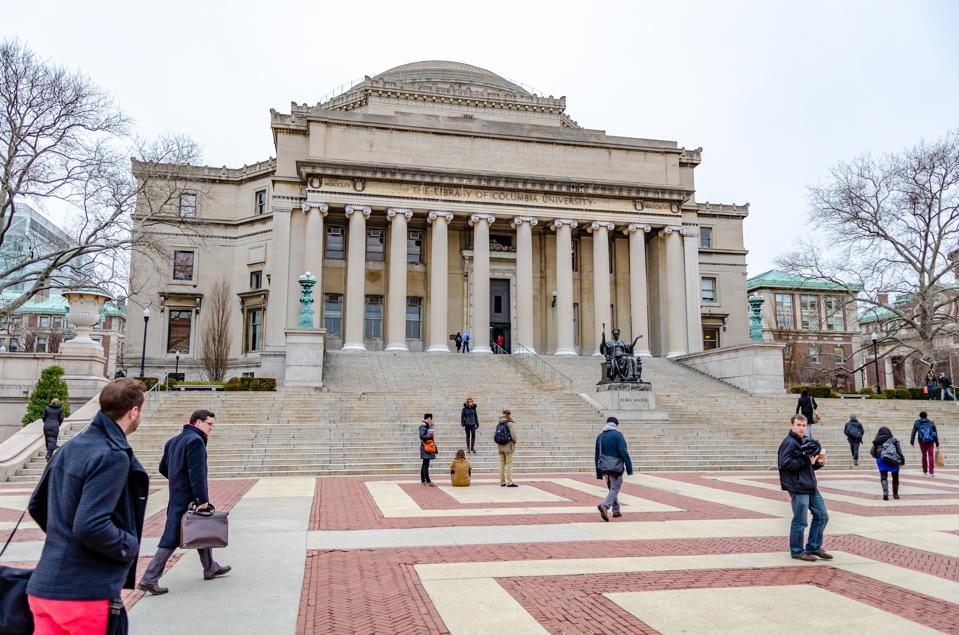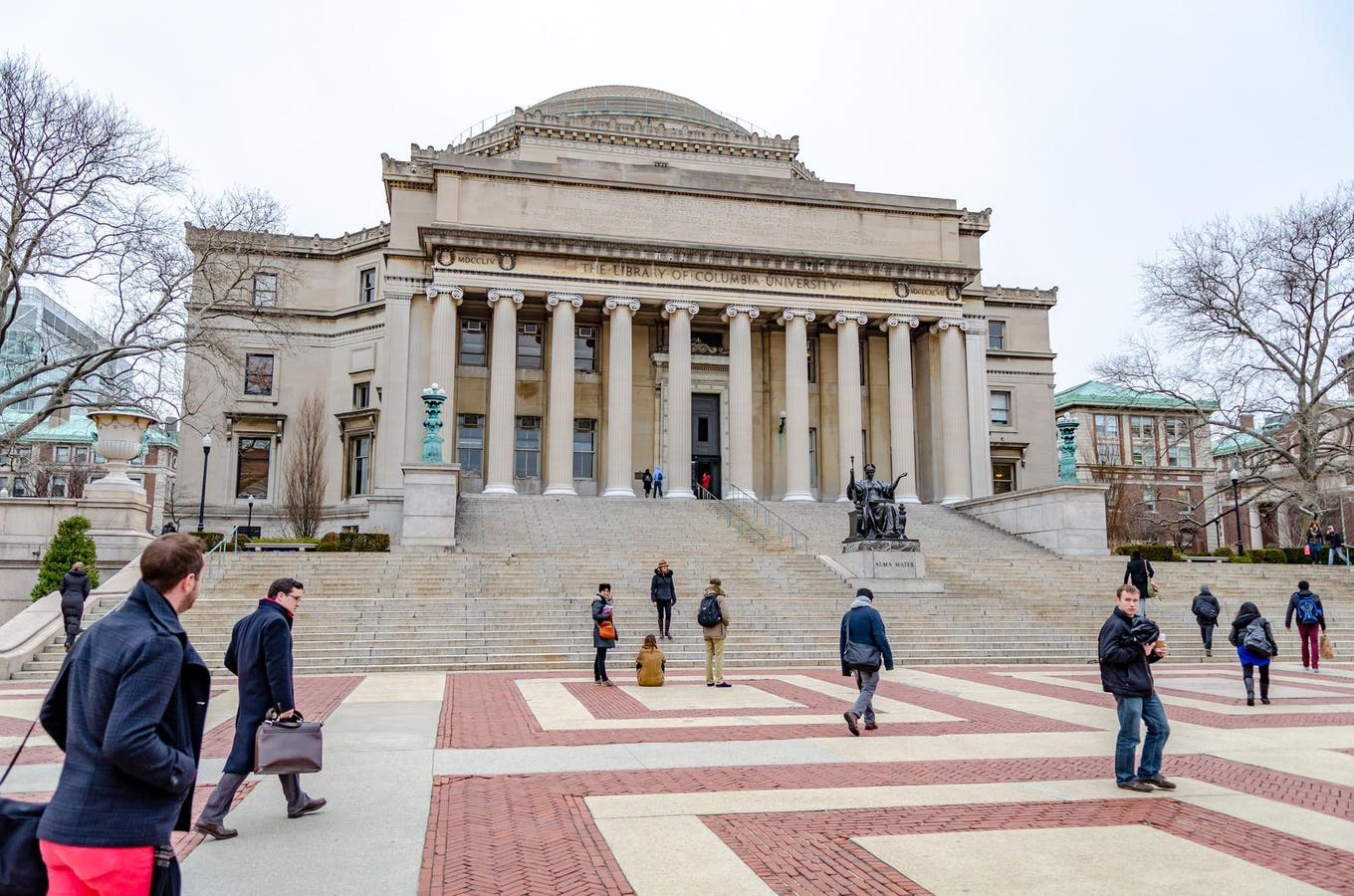
Columbia University has reached a deal resolving its dispute with the federal government. Attention … More now turns to the broader implications for higher education.
getty
Now that Columbia University has finally reached an agreement with the Trump administration resolving several allegations that it violated federal anti-discrimination laws, attention is turning to what the deal could mean for higher education in general.
As part of the deal struck this week, Columbia will pay $200 million over three years to the federal government. In addition, it agreed to dole out another $21 million to settle investigations brought by the U.S. Equal Employment Opportunity Commission.
In exchange, the university said that “a vast majority of the federal grants which were terminated or paused in March 2025 will be reinstated, and Columbia’s access to billions of dollars in current and future grants will be restored.”
Columbia’s leaders insisted that “the agreement preserves Columbia’s autonomy and authority over faculty hiring, admissions, and academic decision-making” and that much of it codified several reforms Columbia had already announced last March, including “enhancements to campus safety, changes to disciplinary processes, and renewed efforts to foster an inclusive and respectful learning environment.”
But the resolution also requires Columbia to end its diversity programs, limit consideration of racial identity in its admissions practices, increase the information it reports on international students, and hire a new administrator to serve as a liaison for Jewish students.
While some observers applauded the outcome, the university’s attempt to cast the deal in the most favorable light possible was disputed by many others, who took exception to several concessions Columbia made, including the selection of Bart M. Schwartz (a former chief of the criminal division of the U.S. Attorney’s Office for the Southern District of New York) as an independent monitor that Columbia will have to pay to assess implementation of the resolution.
Columbia will be required to provide regular reports to Schwartz about whether it’s adhering to the agreement and complying with federal laws and regulations concerning admissions, hiring, and international students.
The agreement – the most comprehensive settlement the government has reached with any of the several universities it’s accused of antisemitism and other types of discrimination — may well have been the deal Columbia needed to strike for its own financial well being.
Acting Columbia University President Claire Shipman seemed to think so: “This agreement marks an important step forward after a period of sustained federal scrutiny and institutional uncertainty. The settlement was carefully crafted to protect the values that define us and allow our essential research partnership with the federal government to get back on track,” she said in a statement.
Shipman emphasized this specific part of the resolution: “No provision of this agreement, individually or taken together, shall be construed as giving the United States authority to dictate faculty hiring, university hiring, admissions decisions, or the content of academic speech.”
She then added, “This was our north star, and we did not waver from it. Columbia’s governance remains in our control. The federal government will not dictate what we teach, who teaches, or which students we admit.”
Time will tell if Columbia did the smart thing for itself by agreeing to this resolution. Cutting its losses, as this deal attempts to accomplish, might have been the best it could do, but the process raises broader questions. For example, will it make other institutions— like Harvard, which initially resisted the administration’s pressure but is reportedly now negotiating with the government — more or less likely to come to terms?
What should be of great concern to university leaders elsewhere is the dangerous precedent that’s been established for how the federal government sets, monitors and enforces higher education policy across the country.
The negotiated settlement with Columbia is almost certain to serve as a blueprint for how the administration will pressure other universities to change policies the president and his conservative supporters don’t like.
President Trump said as much himself, posting this on Truth Social, following the announcement of the agreement — “Numerous other Higher Education Institutions that have hurt so many, and been so unfair and unjust, and have wrongly spent federal money, much of it from our government, are upcoming.”
Secretary of Education Linda McMahon heralded the agreement as “a seismic shift in our nation’s fight to hold institutions that accept American taxpayer dollars accountable for antisemitic discrimination and harassment.”
McMahon, who is presiding over the rapid shrinking of her own department, went on to warn: “Columbia’s reforms are a roadmap for elite universities that wish to regain the confidence of the American public by renewing their commitment to truth-seeking, merit, and civil debate. I believe they will ripple across the higher education sector and change the course of campus culture for years to come.”
Is the new modus operandi for higher education going to become one where the federal government coerces a series of universities to make one ad hoc concession after the other so they can restore the funding the feds have withheld?
Peace for a price, if the price is right? That’s an approach David Pozen, the Charles Keller Beekman Professor of Law at the Columbia Law School, has criticized as “regulation by deal.”
Sacrificing to survive is a framework fraught with difficulty. The government should not be able to dictate how universities are operated through individually negotiated transactions. Rather than following the traditional paradigm of Congress passing laws and the Department of Education promulgating and enforcing rules, such agreements serve largely as window dressing for federal shakedowns.
As Pozen argues, “the style of regulation reflected in the Columbia deal is at once far more coercive and far more arbitrary—opaque in development, unpredictable in application, deeply susceptible to personalism and corruption, and only contingently connected to the laws Congress has written.”
Transactional administration, like that increasingly practiced under President Trump’s leadership, substitutes back-door dealmaking and governmental coercion for principled policy directives and legal consistency.
In the long run, that’s a poor way to improve education, protect students, or promote fairness. And it’s a dangerous path for our colleges and universities to be strong-armed into following.
It has been painful to watch Columbia be bullied. It will be even harder to see other institutions succumb to the same strategy.
